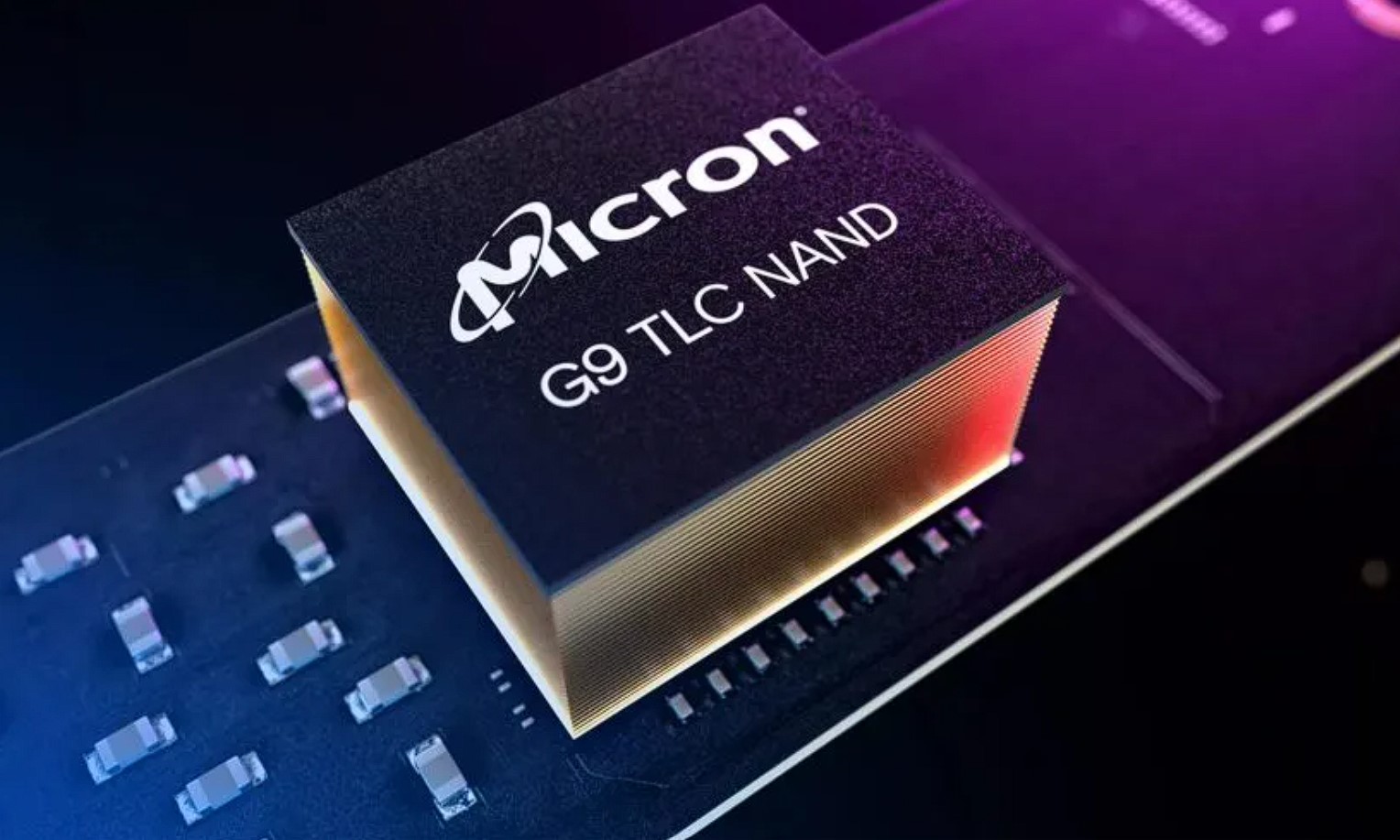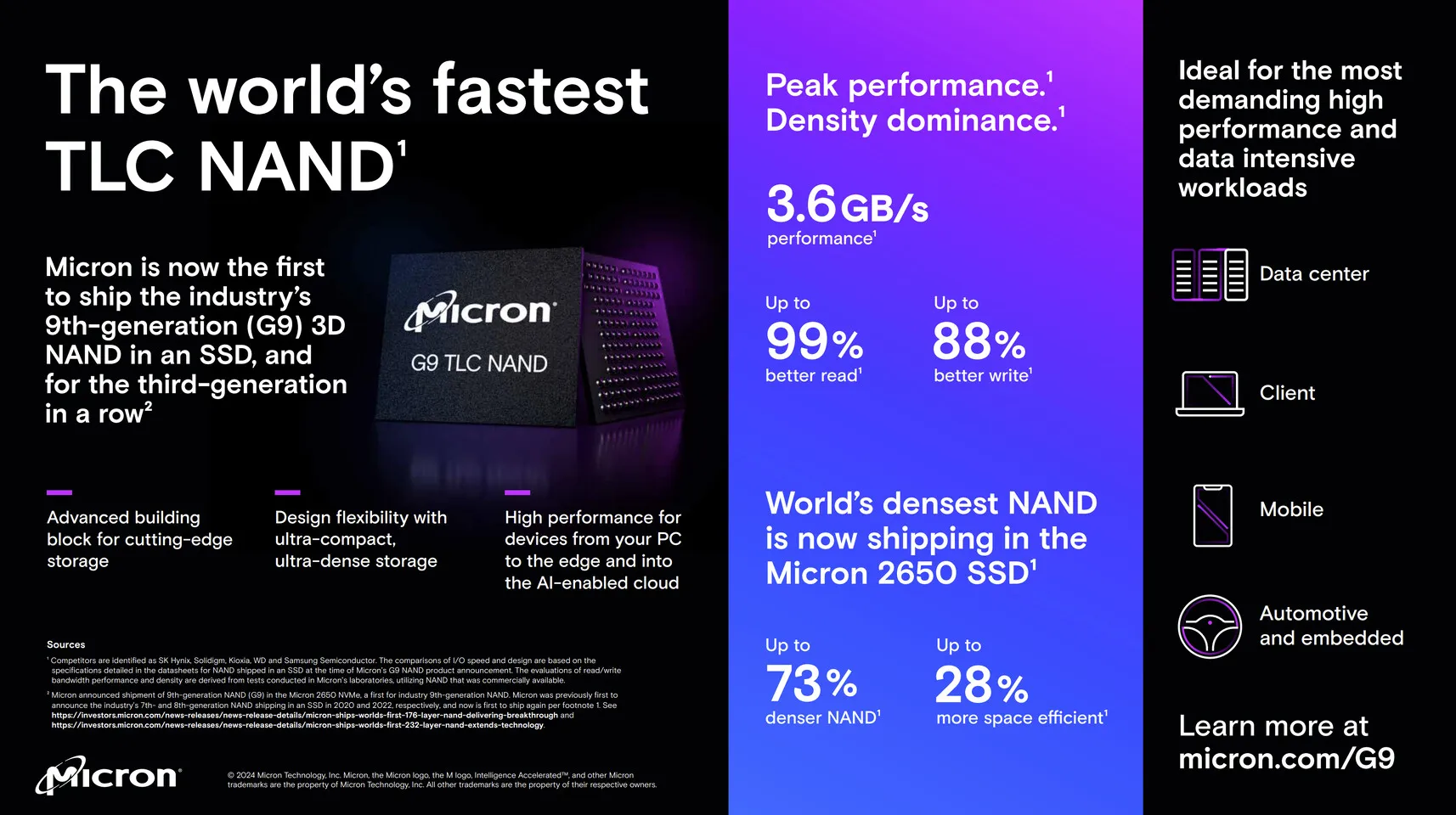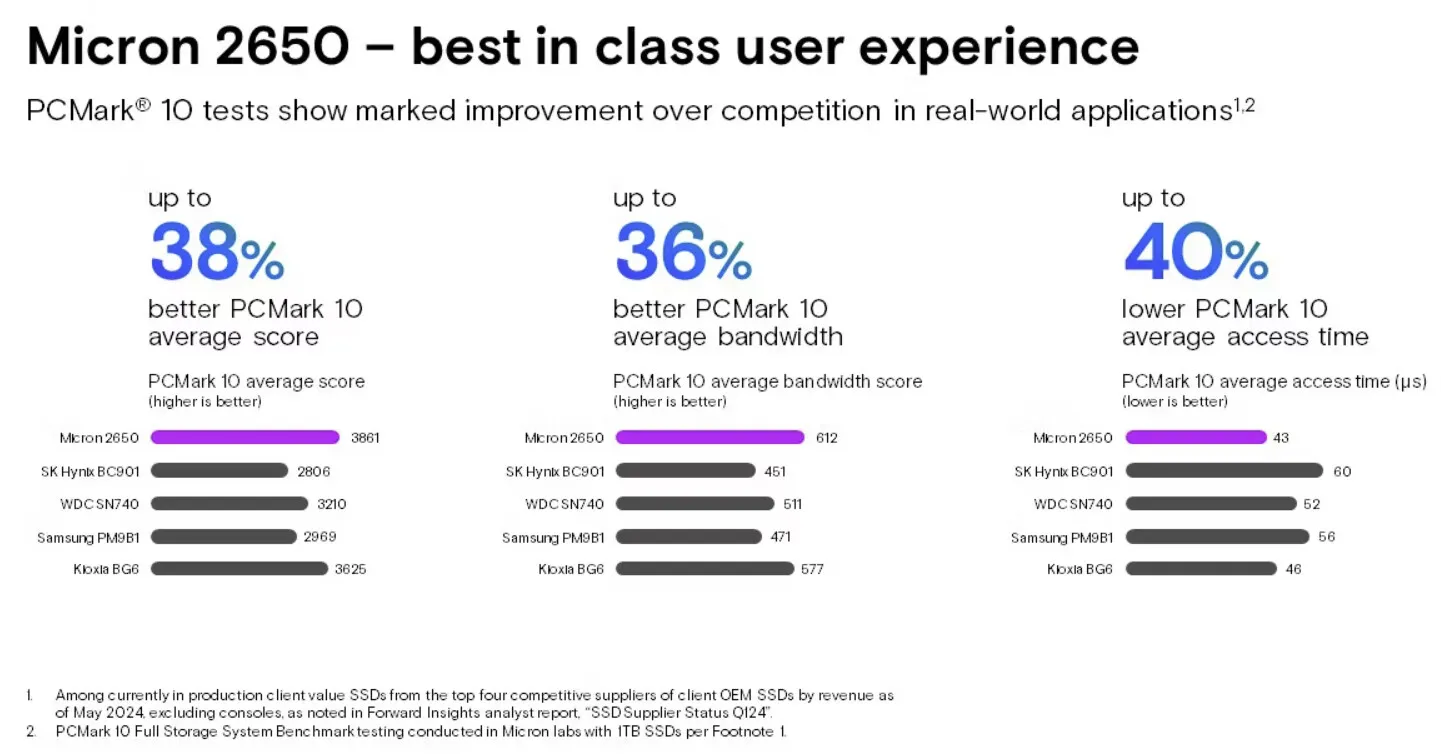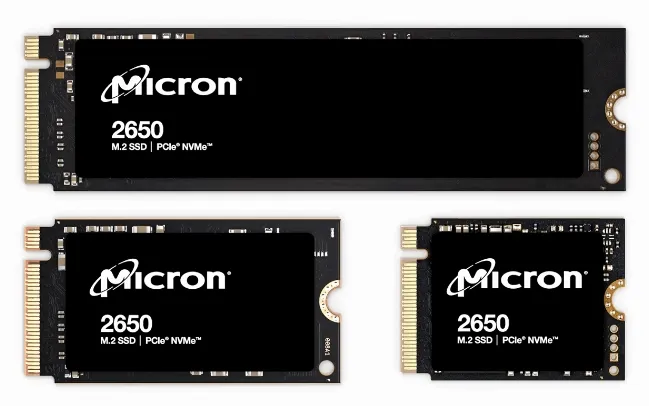Micron Launches 9th Gen NAND Flash

Micron Technology, Inc. has announced the start of volume production for its ninth generation (G9) TLC NAND in SSDs, marking a significant industry milestone. G9 NAND has a transfer rate of 3.6GB/s, providing excellent bandwidth for data reading and writing. This advanced NAND technology is designed to improve performance in artificial intelligence (AI) and data-intensive applications across personal devices, edge servers, enterprises and cloud data centers.
Scott DeBoer, Executive Vice President of Technology and Products at Micron, highlighted the technological advances, saying, "The shipment of Micron G9 NAND demonstrates Micron's excellence in process technology and design innovations." G9 NAND offers up to 73% higher density.

Micron's G9 NAND achieves a 50% increase in data transfer speed over any NAND currently used in SSDs. It also has up to 99% higher write bandwidth and 88% better read bandwidth per die compared to existing competing NAND solutions. These improvements result in significant performance and energy efficiency gains in SSDs and embedded NAND solutions. G9 NAND fits within a compact 11.5mm x 13.5mm package, using 28% less space than competing products, making it the smallest high-density NAND available. This smaller footprint maximizes design options across different application situations.
Sumit Sadana, Executive Vice President and Chief Business Officer at Micron, emphasized: "For the third generation in a row, Micron is leading the industry in introducing innovative NAND technology. Products incorporating Micron G9 NAND will offer significant performance advantages over competing solutions. "

The Micron 2650 NVMe SSD incorporates G9 TLC NAND to deliver a superior user experience in everyday computing that outperforms competitors in PCMark 10 testing. Prasad Alluri, Vice President and General Manager of Client Storage at Micron, stated: "Approaching theoretical saturation levels for PCIe Gen 4, the Micron 2650 SSD leverages our new G9 NAND to redefine what a valuable TLC client SSD can achieve." Drives deliver up to 38% higher PCMark 10 benchmark scores compared to competing solutions.

Jeff Janukowicz, research vice president for IDC's Solid State Drives and Enabling Technologies, noted, "AI advances are generating more data, increasing the need for improved storage performance. SSDs like the Micron 2650 that take advantage of the latest NAND innovations will be critical for a wide range of users."
The Micron 2650 NVMe SSD offers reliable performance with accelerated caching for faster write speeds thanks to its Dynamic SLC Cache. It achieves up to 7,000 MB/s sequential read performance for PCIe Gen 4, outperforming the competition with up to 70% better sequential read, up to 103% better sequential write, up to 156% better random read and up to 85% better random write . These metrics underscore Micron's commitment to advancing technology and delivering high-performance solutions.
Latest storage
-
24 Janstorage
-
17 Decstorage
KIOXIA Launches EXCERIA PLUS G4 SSD PCIe 5.0
-
25 Novstorage
ADATA SE920 External SSD
-
08 Augstorage
Kioxia Develops SSD with optical interface
-
01 Augstorage
Western Digital's revenue below expectations
-
31 Julstorage
Micron Launches 9th Gen NAND Flash
-
02 Julstorage
SK Hynix Announces SSD for AI PCs
-
04 Junstorage
KIOXIA ready with SSD Heatsink
Most read storage
Latest storage
-
24 Janstorage
Corsair launches EX400U USB4 SSD
-
17 Decstorage
KIOXIA Launches EXCERIA PLUS G4 SSD PCIe 5.0
-
25 Novstorage
ADATA SE920 External SSD
-
08 Augstorage
Kioxia Develops SSD with optical interface
-
01 Augstorage
Western Digital's revenue below expectations
-
31 Julstorage
Micron Launches 9th Gen NAND Flash
-
02 Julstorage
SK Hynix Announces SSD for AI PCs
-
04 Junstorage
KIOXIA ready with SSD Heatsink






